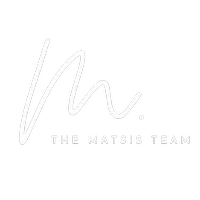- 1/33 33Active
$2,999,999
6 Beds8 Baths12,000 SqFt3 Seacrest DR, Lloyd Harbor, NY 11743
Single Family Home
Listed by Americana Realty Group LLC
- 1/46 46Active
$1,368,000
3 Beds3 Baths2,362 SqFt94 Rockland DR, Jericho, NY 11753
Single Family Home
Listed by Americana Realty Group LLC
- 1/30 30Pending
$2,488,000
5 Beds6 Baths3,650 SqFt3 Westchester AVE, Jericho, NY 11753
Single Family Home
Listed by Americana Realty Group LLC
- 1/20 20Pending
$1,575,000
4 Beds2 Baths132-25 Avery AVE, Flushing, NY 11355
Multi-Family
Listed by Americana Realty Group LLC
Our Blog
Meet Our Team

John Matsis
Broker Associate | License ID: 10301222932
John Matsis
Broker Associate | License ID: 10301222932

Nicole Porto
Agent | License ID: 10401278888
Nicole Porto
Agent | License ID: 10401278888








